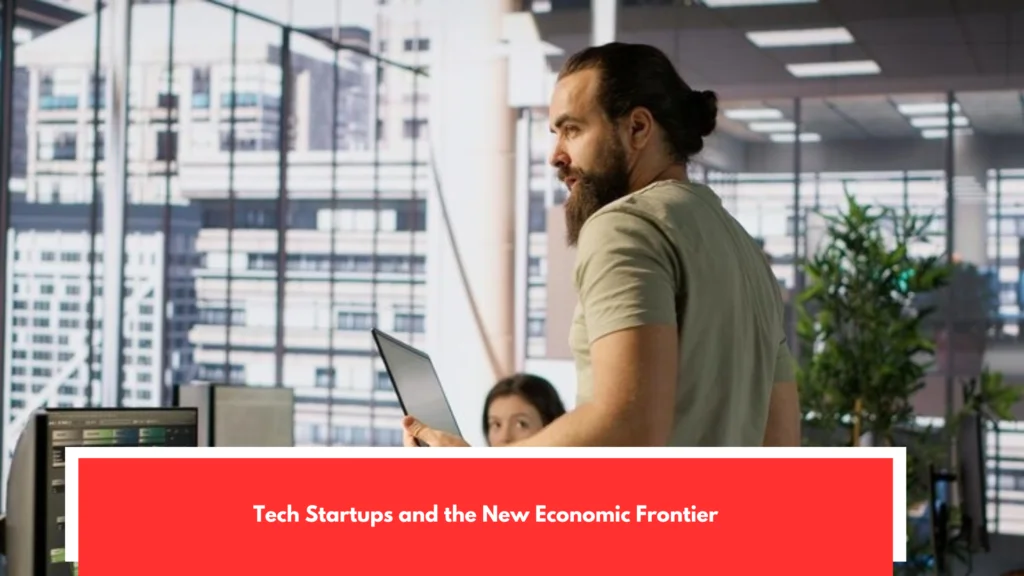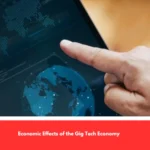At the heart of the technology discussions at the Davos 2024 General Assembly was a greater recognition that the future of AI must go beyond extremes. AI was not the focus of the conversation. Unlike the hype surrounding AI, the heated debates at Davos showed a surprising convergence of opinions on a broader range of issues. Despite the extreme narratives that portray AI as an existential danger or a revolutionary change, people emphasized that the conversations are becoming more nuanced, especially regarding governance and regulation. This how important of discussing Tech Startups and the New Economic Frontier.
The tech titans acknowledged the time factor in the matter and agreed that while there may be disruptions, there is time for adjustments. Unity of action is needed. Today we must leave aside impulsive and revengeful behavior and focus on a conscious approach, with an indomitable commitment to prioritizing people in this transformative process. It is of a more evolved nature, addressing the different models and applications of generative AI, and can be based on existing regulations.
The great divide in technological impact

The question will be how to apply these frameworks in the fields of finance, healthcare, aviation, etc and integrate them into the specific descriptions of AI and other unique innovations in each corresponding sector. In fact, however much the focus shifts between Davos 2024 and beyond, here are five takeaways from the most solemn debates in the field that provide a beautiful lens for understanding the true narrative toward technology and the paths taken along the way. Developing these interfaces to a new level, to radically transform our way of living and working, is a surprisingly complex undertaking.
That will take time. This understanding that not everything can be instantly and seamlessly replaced with a technological counterpart challenges the most simplistic narratives. Across all technologies, fair access is a pending goal. The Forum’s Edison Alliance seeks to bring together people from the telecommunications and information, communications, and technology industries in general, as well as members of economic sectors such as healthcare, financial services, and education, as well as the investment community, to increase digital inclusion.
Frontier Technologies set to become more accessible for developing economies

At Davos 2024, the Alliance reported good progress in bridging the digital divide. By January 2024, Alliance partners had improved the lives of 784 million people through 320 projects in 127 countries, currently exceeding the organization’s 2025 target by 75%. We also produced the impact report, which shows what we have achieved and highlights the urgent demand for further commitment to achieving universal digital inclusion as a fundamental resource of the Sustainable Development Goals.
Although we talk about them as emerging technologies, the reality is that numerous applications in the quantum field have already entered the market, such as sensing, navigation, and communication. It is expected that by 2030, the technologies will be ready to contribute significantly to the global economy, comparable to AI. Companies and governments can start this process now to ensure a well-trained and interdisciplinary workforce.
Public trust in innovation is critical to economic development

The president of ETH Zurich said at a conference on quantum technology, ‘We cannot waste the power of a combination of engineering experts and the most highly qualified professionals among us, so we have to start now.’ Quantum computing will not be installed in a pristine factory. “It wouldn’t make sense for us to find 100, 200, 2,000 other beings who aren’t as enthusiastic about the applications that will benefit from these computers if we preempt the development team to develop that application,” explains Ana Paula Assis, president of IBM’s Europe, Middle East, and Africa division.
We asked how machine learning would learn from quantum computing and what conversations decision-makers would initiate about AI dialogue attacks to prepare for the coming quantum economy. This week, the Forum presents a guide for those needed policymakers, industry, and academia to build a quantum ecosystem that benefits everyone. SandboxAQ CEO Jack Hidary said: “We can’t let the quantum divide be what the digital divide was: the top four global threats of the last 10 years are around climate change.
Conclusion

Fourth Industrial Revolution technologies can help contain them. They are especially significant in the space technology sector. William Marshall, co-founder and CEO of Planet Labs PBC, explained We can’t let the quantum divide be what the digital divide was: the top four global threats of the last 10 years are around climate change. Fourth Industrial Revolution technologies can help contain them. They are especially significant in the space technology sector. Space entities must consider savings, cost savings, and impact.
Public trust in innovation plays a pivotal role in fostering economic development, especially in Southeast Asia and the broader Global South, where trust serves as a crucial prerequisite for the adoption of transformative technologies. The Tech for Good Institute‘s research underscores the importance of integrity in technology service providers, revealing it as one of the most consistent predictors of trust across Southeast Asian economies, encompassing aspects such as integrity in strategies, systems, and services.





